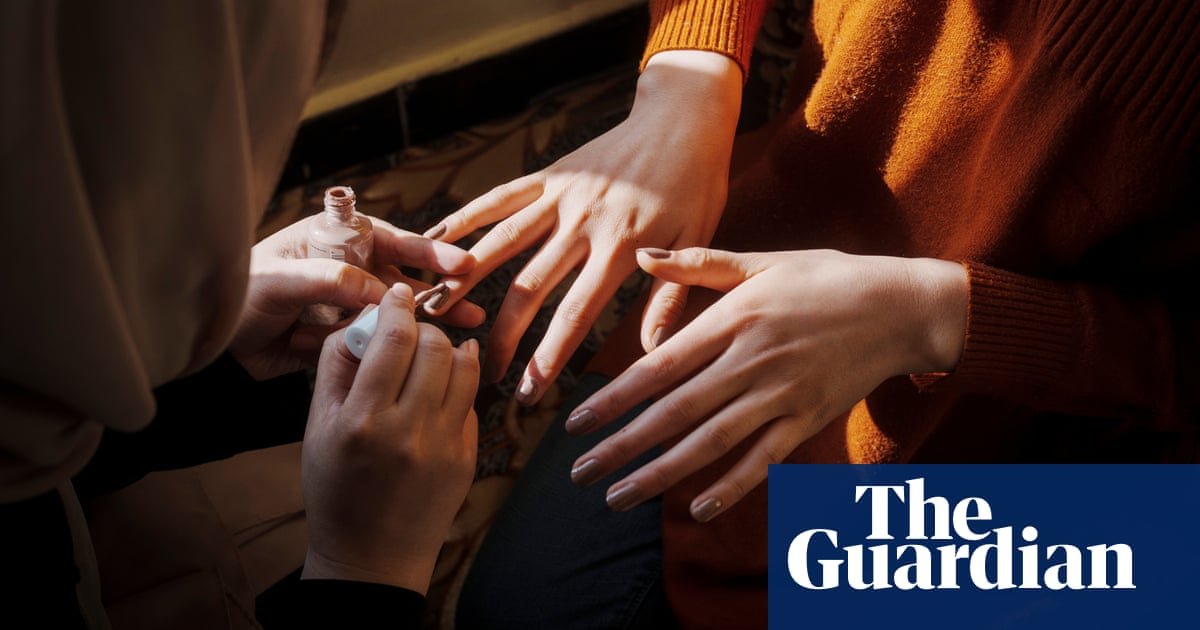It is 9am in a suburb of Kabul when two women in powder-pink burqas ring the doorbell of a drab building. The exterior is a silent reminder of the gloomy atmosphere that prevails in the capital. “Can you let us in?” they whisper.
A woman called Sonia* opens the door. Before the Taliban’s takeover of Afghanistan in 2021, this 56-year-old hairstylist and beauty salon owner never imagined that one day she would have to work in secret.
After letting her clients in, Sonia mechanically unpacks her beauty paraphernalia on the table: makeup palettes, hairdryers, flat irons, waxes, mascara, nail polish, false nails, kohl and brushes. It’s all there.
Running the secret salon could cost her a fine, several months in prison or worse.
But Sonia cannot afford to let fear overwhelm her. If she does not concentrate, the eyeliner will not be applied properly and her customers won’t come back.
“What can I do for you?” Sonia asks her clients, who are both in their 20s. In the world’s most repressive country for women, such courtesies have become dangerous.
The Taliban announced the closure of beauty salons throughout Afghanistan in July 2023, claiming a number of the services they offered – including eyebrow shaping and the application of makeup – were violating Islamic law.
In a country with more than 12,000 salons, the ban had a devastating impact on the estimated 60,000 women who worked in the sector. The salons had also served an important social function for Afghan women – providing a safe, female-only space where they could meet outside their homes and without a male chaperone.
Since being banned when the Taliban were in power between 1996 and 2001, beauty parlours had proliferated with thousands opening across Kabul and other Afghan cities during the western military occupation.
Many remained open after the Taliban returned to power almost three years ago. But since the 2023 ruling, what little freedom women had left has now been curtailed.
Despite the ban, and at great personal risk, some beauticians have decided to continue working in order to feed their families: financial hardship is a leading driver of the Afghan beauty sector.
“I refuse to marry off my daughters for money. I must earn a living,” says Amina*, a 37-year-old beautician who has been working in the industry for more than 15 years.
Some women transform their homes into salons. Others make home visits to their customers, but in order to apply makeup to the faces that the Taliban regime wants to hide, strict rules are followed.
“We use techniques to avoid being arrested. For example, my clients wear burqas of a specific colour so that I know it’s them. I never take the same roads and avoid travelling at regular times,” says one beautician.
Nothing is left to chance. Even the plastic bag for carrying the tools of the beauty trade is chosen carefully. Amina uses a branded one from a well-known grocery store in the capital. “This bag is our alibi. Other beauticians prefer to hide banned products under their burqa.”
after newsletter promotion
“We are all prisoners of the Taliban. I was born a woman and that’s my greatest crime. The price of my beauty is the price of my freedom. I’d rather sacrifice some meals to have my eyebrows and hair done,” says Noor*.
What had been a habit has now become a dangerous luxury. “We listened to music and dressed like westerners. It was our moment of freedom,” says a university teacher of the time before the Taliban, when she would visit her local beauty salon every two weeks.
Now, she treats herself to a clandestine makeover every two months and wears gloves to hide her colourful varnished nails when she goes out.
Behind the thick blue velvet burqa, many women in Afghanistan are well groomed, especially those who can afford it.
“Like every woman in the world, I want to be beautiful. The Taliban can stop me from working and walking alone, but they will never be able to control my beauty. It’s all I have left,” says another client who was bringing her 19-year-old daughter to the salon to celebrate the teenager’s transition to adulthood.
Beauticians risk being turned in by neighbours, makeup suppliers or fake clients who are informers for the Taliban. The risk has been aggravated by mass surveillance, introduced by the Taliban to enforce their strict interpretation of sharia law.
“One of my colleagues was arrested by the Taliban because of her secret salon. No one has heard from her since; I fear the worst,” says Sonia.
Since the Taliban came to power, Afghanistan’s 21 million women and girls have gradually been deprived of even their most basic rights. Confined to their homes, unable to study, work or walk freely, the number of women killing themselves has risen, while sexual crimes are at an all-time high.
Now, just as during the first Taliban regime, judges are being encouraged to order flogging when sentencing. “Afghan women are already dead. They can stone and flog us – I will continue to apply makeup to my clients. I’m scared, but there is no alternative,” says Amina.
* Names have been changed to protect identities
